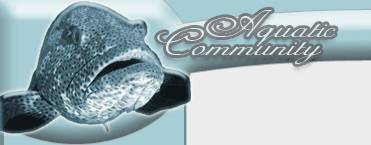Trichinosis in dogs
What is Trichinosis?
Trichinosis is a parasitic disease known under several different names, including Trichinellosis and Trichiniasis. This is not only a dog disease; it can affect several other animals including humans. You cannot catch Trichinosis from your dog unless you eat it, since you get Trichinosis by eating raw or undercooked meat infected with larvae from the roundworm Trichinella spiralis (the Trichina worm). Trichina larvae can be present in pork and wild game and will die if the meat is properly cooked. Trichinosis is not common in countries with stringent food regulations; it is however a problem in a lot of third world countries where pigs are feed raw garbage and it can also be a problem for hunters all over the world who eat their catch without first cooking it properly.
Trichinosis symptoms in dogs and humans
In many cases, the dog owner will never notice any symptoms of Trichinosis (Trichina worm) in the dog. Humans are more likely than dogs to become ill, and human deaths have occurred as a result of Trichina worm infection.
Adult worms in the intestine can lead to diarrhoea, vomiting, weakness and fever. Migrating larvae can cause inflammation of the blood vessels, with bleeding under the nails and in the white part of the eye. When Trichina worm larvae encyst in a muscle it can cause severe muscle inflammation, accompanied by pain and weakness. When trichinosis is fatal, it is usually due to heart failure, pneumonia or encephalitis (inflammation of the brain).
Preventing Trichinosis in dogs
Today, Trichinosis is very uncommon among humans, dogs and pigs in developed countries. During the 1950s, roughly 500 cases of human Trichinosis were reported in the United States each year, but then a law was passed that made it illegal to feed pigs uncooked garbage. As a result of this law and public education campaigns, there are currently less than 80 reported cases of Trichinosis in the United States each year. A lot of them are caused by improperly cooked wild game.
-
Do not feed your dog uncooked pork or wild game.
-
Do not allow your dog to catch and eat rats.
-
Cook pork meat and wild game to an inner temperature of at least 140°F (62 °C).
-
If you use a microwave to cook dog food, make sure that the entire peace of meat is uniformly cooked.
-
Freezing will kill the Trichina worm larvae, but only if you freeze the meat for a long enough period of time. A 6 inch thick piece of pork should for instance be frozen for at least 20 days 5 °F (−15 °C) or three days at −4 °F (−20 °C). Freezing wild game is not recommended, since wild game can contain a species of trichinella highly capable of surviving freezing temperatures.
-
Stringent kitchen hygienic routines, e.g. carefully cleaning meat grinders.
-
Curing, drying or salting is not a reliable way of killing infective Trichina worms. (Some of these methods can work if carried out under controlled commercial food processing conditions checked by an expert, but they should not be tampered with at home.)
Trichinosis treatment for dogs
Several drugs have proven effective against Trichinosis in dogs, such Mebendazole which will kill roundworm larvae residing the muscles of the dog. To kill adult worms in the intestine of the dog, Thiabendazole can be administered to the dog. Many vets combine corticosteroids with aspirin to treat the symptoms of Trichinosis.
Parasites in dogs: (click for more info)
Cheyletiellosis in dogs
Chiggers in dogs
Ear Mites in dogs
Fleas in dogs
Heartworm disease in dogs
Hookworms in dogs
Mange in dogs
Roundworm in dogs
Tapeworms in dogs
Ticks in dogs
Trichinosis in dogs
